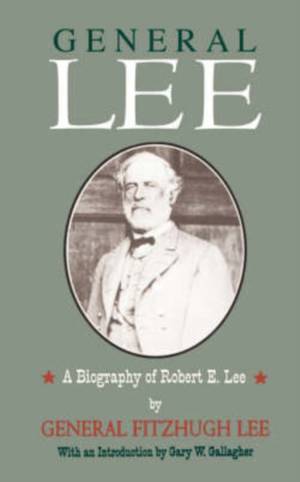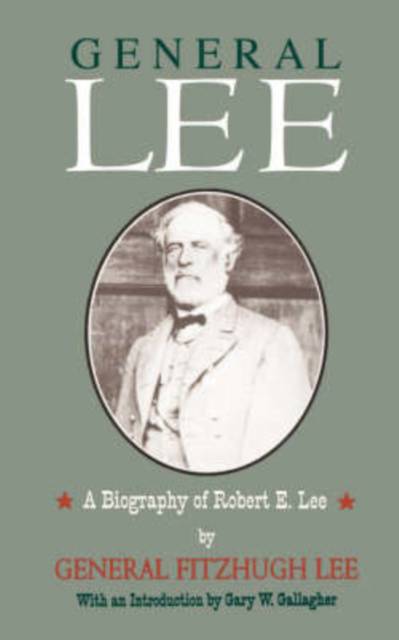
- Afhalen na 1 uur in een winkel met voorraad
- Gratis thuislevering in België vanaf € 30
- Ruim aanbod met 7 miljoen producten
- Afhalen na 1 uur in een winkel met voorraad
- Gratis thuislevering in België vanaf € 30
- Ruim aanbod met 7 miljoen producten
Zoeken
€ 42,45
+ 84 punten
Uitvoering
Omschrijving
"A worthy addition to any collection of books on R. E. Lee and the Army of Northern Virginia."--Gary W. Gallagher Soldier, politician, and author, General Fitzhugh Lee (1835-1905) had earlier attended West Point as a cadet and proved to be a boisterous challenge to the superintendent of the Academy, who was also his uncle: Robert E. Lee. Fitzhugh developed an abiding affection and respect for Lee, culminating in the nephew's brilliant service to the Confederate cause. On his part, Lee commended Fitzhugh as "an excellent cavalry officer. . . . I feel at liberty to call upon him-on all occasions." It was Fitzhugh who discovered how vulnerable Joseph Hooker's right was and thus enabled Robert E. Lee and Stonewall Jackson to plan the war's most famous flanking movement at the battle of Chancellorsville. Later, Fitzhugh's cavalry covered the final retreat of Lee's exhausted army to Appomattox.
After the war, his close relationship with his uncle continued, finding its best expression in Fitzhugh's biography, General Lee, which is valuable both as a passionate portrait of the celebrated general and as a historical document. Fitzhugh enjoyed the great advantage of access to Lee's unpublished private papers and used them generously, so that the strongest voice the reader encounters is not the author's, but his subject's. The book covers Lee's early service in the Mexican War through his masterful command during the Seven Days Battle and later at Second Manassas, Sharpsburg Fredericksburg, Chancellorsville, and Gettysburg, up to his surrender and last years. General Lee admits readers into the mind of the South's greatest hero and permits them to relive the immense achievements his military genius won against enormous odds.
With an introduction by Gary W. Gallagher
After the war, his close relationship with his uncle continued, finding its best expression in Fitzhugh's biography, General Lee, which is valuable both as a passionate portrait of the celebrated general and as a historical document. Fitzhugh enjoyed the great advantage of access to Lee's unpublished private papers and used them generously, so that the strongest voice the reader encounters is not the author's, but his subject's. The book covers Lee's early service in the Mexican War through his masterful command during the Seven Days Battle and later at Second Manassas, Sharpsburg Fredericksburg, Chancellorsville, and Gettysburg, up to his surrender and last years. General Lee admits readers into the mind of the South's greatest hero and permits them to relive the immense achievements his military genius won against enormous odds.
With an introduction by Gary W. Gallagher
Specificaties
Betrokkenen
- Auteur(s):
- Uitgeverij:
Inhoud
- Aantal bladzijden:
- 489
- Taal:
- Engels
- Reeks:
Eigenschappen
- Productcode (EAN):
- 9780306805899
- Verschijningsdatum:
- 22/08/1994
- Uitvoering:
- Paperback
- Formaat:
- Trade paperback (VS)
- Afmetingen:
- 137 mm x 215 mm
- Gewicht:
- 557 g

Alleen bij Standaard Boekhandel
+ 84 punten op je klantenkaart van Standaard Boekhandel
Beoordelingen
We publiceren alleen reviews die voldoen aan de voorwaarden voor reviews. Bekijk onze voorwaarden voor reviews.











